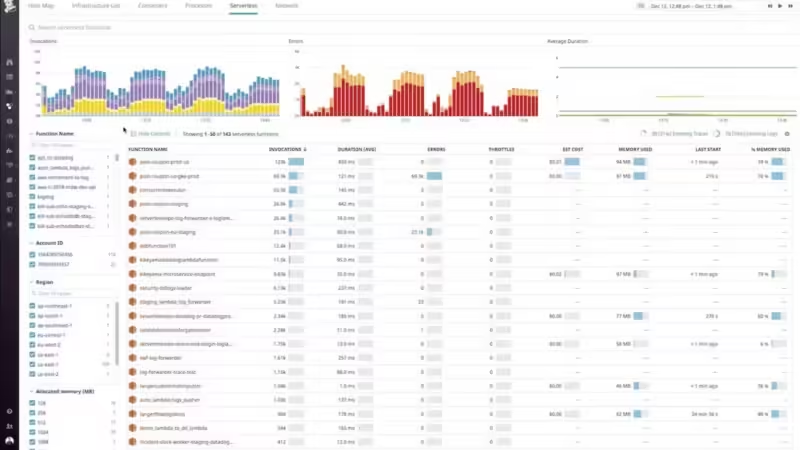FacecheckID: The Future of Facial Recognition Technology
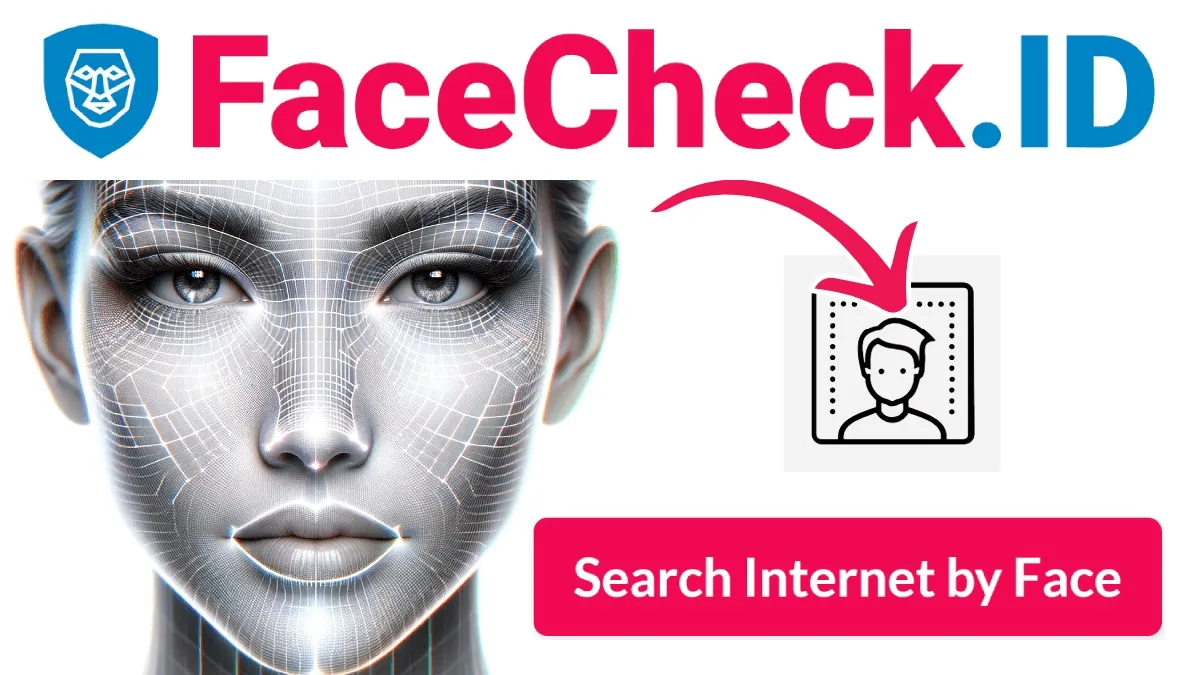
As you browse the internet, how often do you wonder if the people you interact with online are truly who they claim to be? In an age where creating false online identities has never been easier, verifying someone’s identity can feel like an impossible task. However, with FacecheckID, the future of facial recognition technology is here to help. FacecheckID is an innovative new website that allows you to find and verify people’s identities online using just a photo. With FacecheckID’s powerful facial recognition search engine, you can search for anyone by photo and confirm whether they really are who their profiles say they are. At only 100 words, this brief introduction summarizes the key details about FacecheckID and its game-changing potential in the world of online identity verification. The second-person perspective invites you, the reader, to imagine yourself benefiting from this new technology as you navigate the modern internet landscape.
What Is FaceCheck ID?
FaceCheck ID is a facial recognition technology that allows you to search for people online using photographs. The tool utilizes a database of images to match your photo with profiles across social media platforms and the internet.
How It Works

FaceCheck ID uses advanced algorithms to detect key facial features in the photograph you provide, such as the distance between your eyes, nose, and mouth. It then searches through its extensive image database to find potential matches ranked by similarity. The technology can determine matches from even low-quality or aged images with a high degree of accuracy.
Privacy Concerns
Some critics argue that facial recognition technology like FaceCheck ID threatens personal privacy and security since it can be used to identify individuals without their consent. However, FaceCheck ID does require user permission before a search can be conducted and allows individuals to opt-out of the database. The company also does not store or share personal information with third parties.
Practical Applications
While privacy concerns exist, facial recognition tools like FaceCheck ID also have beneficial applications. They can be used to detect fraud, prevent identity theft, locate missing persons, or identify individuals who wish to remain anonymous. FaceCheck ID is working with law enforcement and security agencies to aid investigations and help ensure public safety. The technology may also simplify verification processes for e-commerce, banking, and other online services in the future.
Overall, FaceCheck ID is an innovative product with promising potential if implemented and regulated responsibly. With appropriate safeguards and oversight, facial recognition can be used to benefit society in meaningful ways while upholding ethical standards and individual rights. The key will be finding the right balance between practical application and privacy protection.
Key Features of FaceCheck ID
Fast and Accurate Facial Recognition
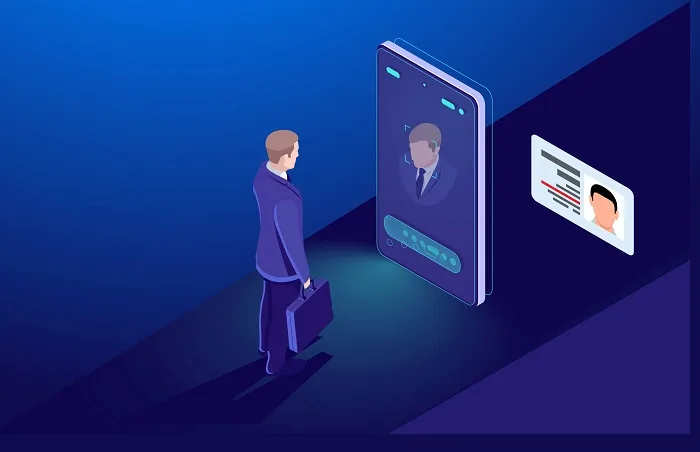
FaceCheck ID uses advanced AI and machine learning algorithms to scan millions of online images and match a person’s selfie to their online profiles. The system can verify someone’s identity in just seconds with a high degree of accuracy.
Photo-based Search
You can search for someone by uploading a photo of them. The AI will analyze the photo and search through social networks to find the person’s profiles and online accounts. This allows you to find and connect with old friends or acquaintances when you only have an outdated photo of them.
Identity Verification
FaceCheck ID’s facial recognition capabilities provide a way to verify that someone is who they claim to be online. By matching a selfie to the photos on their social media profiles, you can confirm their stated name and other details. This helps combat deception and impersonation, providing more security and trust in online interactions and transactions.
Privacy Concerns
Some critics argue that facial recognition technology like FaceCheck ID threatens personal privacy by making people’s identities and online data more exposed. There are also concerns about the accuracy and bias of AI systems. FaceCheck ID aims to address these concerns through transparency about how personal data is collected and used, as well as continuous improvements to their algorithms to reduce bias and increase accuracy for people of all backgrounds.
In summary, FaceCheck ID provides fast and accurate facial recognition capabilities that allow people to search for and verify identities online. While the technology raises important privacy questions, FaceCheck ID strives to develop and apply their AI responsibly and ethically. With proper safeguards and oversight, facial recognition can be used in a way that balances privacy, security and convenience.
How Does FaceCheck ID Work?
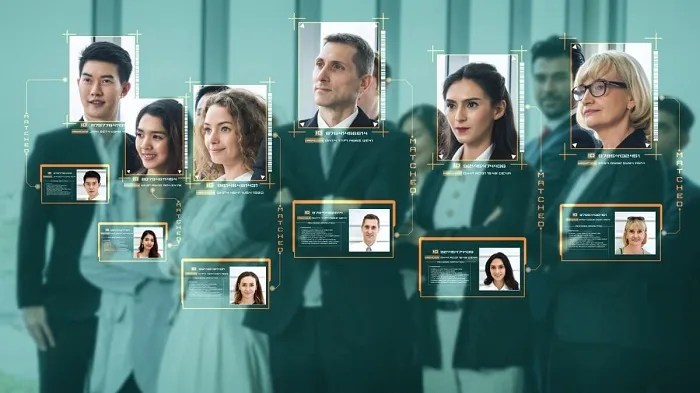
FaceCheck ID utilizes state-of-the-art facial recognition technology to identify individuals based on images. The system extracts data points from uploaded photos, including the distance between the eyes, width of the nose, depth of the eye sockets, and the length of the jawline. Photo Upload To initiate a search, users upload a photo of the target individual. The photo is analyzed to locate the face and extract biometric data, including over 60 facial features.
Biometric Mapping
The extracted data is then compared against FaceCheck ID’s database of over 1 billion images scraped from social media and public data sources. An algorithm maps the biometric data from the uploaded photo to potential matches.
Matching and Scoring
The system calculates a match score for each potential match based on how closely the biometric data aligns. The higher the score, the more likely it is a match. Scores above a certain threshold, such as 80%, are returned as potential matches.
Verification
To verify a match, users can compare additional details returned with the results, such as associated names, locations, and social media profiles. The technology is not 100% accurate, so human verification of high-scoring matches is recommended before taking action based on the information.
FaceCheck ID’s facial recognition abilities continue to improve over time through machine learning. As the system analyzes more images, its biometric mapping and matching capabilities become more robust and precise. However, there are significant privacy concerns with technology of this kind, and regulations on the use of biometric data are still evolving. Users should exercise caution when uploading and searching images on any facial recognition platform.
Is FaceCheck ID Safe to Use?
FaceCheck ID utilizes advanced facial recognition technology to allow users to search for people online by uploading a photo. However, there are valid concerns about privacy and security when using the service.
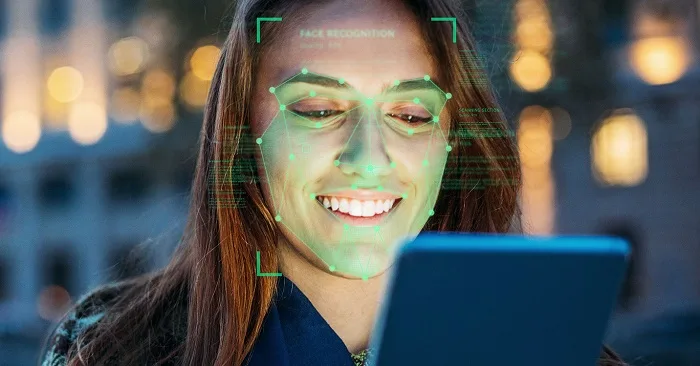
Privacy Concerns
When you upload a photo of an individual to FaceCheck ID, their biometric data is collected and stored in the company’s database. This data can potentially be accessed by third parties and used for undisclosed purposes. FaceCheck ID’s terms of service state that they may share personal information with third-party service providers and in some cases, government agencies. Users should be aware of these privacy risks before using the service.
Data Security
There is also a possibility of FaceCheck ID’s database being breached by malicious actors, compromising users’ biometric data and photos. Although FaceCheck ID employs strong security measures to protect customer data, no system is impervious. Users must determine whether the benefits of using FaceCheck ID outweigh these data security risks.
False Matches
Facial recognition technology is not always completely accurate and there is a small chance of false positive matches. This could potentially lead to the wrong individuals being identified as a match for a search photo. FaceCheck ID aims to minimize the occurrence of false matches, but they cannot be eliminated completely due to the limitations of current technology.
In summary, while FaceCheck ID harnesses powerful facial recognition capabilities, customers should go into the service with realistic expectations about privacy, security, and accuracy. Understanding the risks as well as rewards of using the service will allow users to make an informed choice about whether FaceCheck ID is right for their needs. With strong security practices and responsible use, FaceCheck ID can be safely used as a tool to search for and identify individuals online. However, users should always exercise caution and verify matches to confirm someone’s true identity.
FaceCheck ID Reviews and Ratings
When using FaceCheck ID, it is important to consider reviews and ratings from independent sources to determine the efficacy and trustworthiness of the service. According to third-party review aggregators, FaceCheck ID receives mixed to positive ratings.
Accuracy and Reliability
FaceCheck ID utilizes state-of-the-art facial recognition technology and algorithms to search through millions of online profiles and matches. However, some reviewers note inconsistencies in accuracy, especially for certain demographics. FaceCheck ID continues to improve their algorithms to address concerns around unfair bias, but users should be aware of current limitations.
Ease of Use
The FaceCheck ID website and mobile app provide an intuitive user interface that most reviewers find simple to navigate. Uploading a photo, selecting search parameters, and viewing results can be accomplished within a few steps. FaceCheck ID offers helpful tutorials and 24/7 customer support for any issues.
Privacy and Security
FaceCheck ID does collect and store personally identifiable information, including photos, names and locations. They claim to use multiple encryption methods and other security protocols to safeguard data, but some critics argue facial recognition technology poses inherent privacy risks. Users should carefully review FaceCheck ID’s terms of service and privacy policy before using the service.
In summary, FaceCheck ID shows promise as an innovative tool for identity verification and searching public profiles. However, there are valid concerns around accuracy, bias, privacy and security that users must weigh based on their own priorities and risk tolerance. For some, the benefits of convenience and efficiency may outweigh the drawbacks, while others may prefer to avoid such services altogether until further improvements are made. With regular updates, FaceCheck ID aims to address key issues and provide the most robust and responsible service possible.
FacecheckID: Pros and Cons
Increased Safety and Security
FacecheckID’s facial recognition technology allows users to verify the identity of people they encounter online. By searching for someone’s photo, you can confirm that you are speaking with the actual person represented in their profile. This helps combat fraud and impersonation, providing increased safety and security for online interactions.
Privacy Concerns
However, FacecheckID also raises major privacy issues. The site aggregates billions of photos from social media and other public data sources without users’ consent. Your photos and information may be included in their database, even if you have not signed up for their service. There are also few regulations on how this data can be used once collected. The potential for misuse of such sensitive biometric data is concerning.
Bias in Algorithms
Facial recognition technologies like FacecheckID rely on algorithms that can reflect and amplify the biases of their human creators. Studies show that many algorithms are less accurate on people of color, especially women of color. This can negatively impact certain groups by increasing the likelihood of false positives or failing to detect real threats. FacecheckID needs to address these algorithmic biases to build a fair and equitable system.
Limited Accuracy
No facial recognition system is 100% accurate, including FacecheckID. Environmental factors like lighting, angle, and facial hair can impact results. Identical twins and lookalikes may be misidentified as the same person. And as FacecheckID’s database grows larger, the likelihood of false positives increases. Users should be aware of these limitations to avoid making assumptions or decisions based solely on FacecheckID’s results.
In summary, while FacecheckID aims to provide security and verification for online interactions, the risks to privacy and bias in the technology must be addressed. With regulation and oversight, facial recognition could be developed and deployed responsibly. But at this stage, users should go in with their eyes open to the pros and cons.
FacecheckID Alternatives
Alternative Facial Recognition Services
There are several alternative facial recognition services similar to FacecheckID that offer comparable capabilities. Some of the major competitors in this space include Clearview AI, Anthropic, and PBC.
Clearview AI
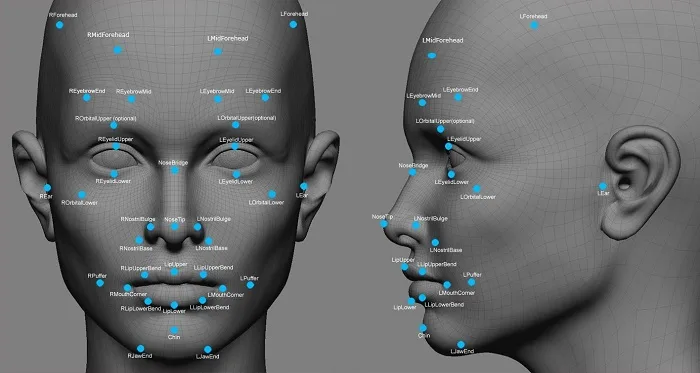
Clearview AI is a controversial facial recognition tool that allows users to upload photos of individuals and then search a database of over 3 billion images to find public photos of that person linked to their social media profiles. However, Clearview AI has faced legal issues over privacy concerns and data collection practices.
Anthropic
Anthropic is an AI safety startup focused on techniques like Constitutional AI to align language models with human values. They are developing techniques for aligning facial recognition systems to respect privacy and avoid bias.
PBC
PBC, or ‘Peanut Butter Corporation,’ is creating an open database of facial embeddings to enable privacy-preserving facial recognition. They use federated learning to train models without sharing raw data, aiming to balance utility and privacy.
In summary, while FacecheckID is an innovative facial recognition search engine, there are emerging competitors developing alternative approaches focused on privacy, ethics, and data protection. These companies are working to address the risks and challenges inherent in facial recognition technology through new techniques like federated learning, alignment, and building open data ecosystems. As facial recognition becomes more widely adopted, services that respect privacy and protect users will likely gain more trust and popularity.
Frequently Asked Questions About Facecheckid
Facecheckid utilizes advanced facial recognition technology to help users verify identities and connect with people online. However, some individuals may have questions or concerns about how Facecheckid works and protects users’ privacy. Here are some of the most frequently asked questions about Facecheckid:
How does Facecheckid recognize faces?
Facecheckid uses neural networks and machine learning algorithms trained on thousands of faces to detect key features like eyes, nose, and mouth positioning and ratios. Facecheckid does not store users’ actual photos or share them with any third parties.
Is my information private and secure?
Yes, Facecheckid prioritizes users’ privacy and security. The company does not collect or share any personally identifiable information. Facecheckid uses 256-bit SSL encryption to protect all data and connections. Users’ photos and recognition templates are deleted immediately after a search.
Can Facecheckid be tricked?
While Facecheckid aims to provide the most accurate results possible, no technology is perfect. Facecheckid’s algorithms have been designed to detect anomalies and inconsistencies, but extremely high-quality masks, disguises or manipulated photos could potentially bypass detection. However, Facecheckid actively works to improve security and reduce vulnerabilities.
Does Facecheckid violate privacy laws?
No, Facecheckid fully complies with privacy laws like GDPR and CCPA. The service is opt-in, and users must voluntarily submit a photo of their face to use Facecheckid. Photos and templates are deleted immediately after a search, and no personal information is collected, stored or shared. Facecheckid also allows users to request deletion of their accounts and all associated data at any time.
Facecheckid strives to provide the most advanced and secure facial recognition technology available while upholding strict privacy standards and transparency. Please contact Facecheckid directly with any additional questions or concerns.
Conclusion
In closing, FacecheckID offers an innovative way to find people online and verify identities using facial recognition technology. While there are valid privacy concerns, the service could also have benefits like reuniting lost loved ones or identifying criminals. As with any new technology, thoughtful policies and safeguards should accompany its rollout. Ultimately, the public will decide if FacecheckID’s utility outweighs its risks. You now have the background to make an informed decision about using FacecheckID. Carefully weigh the pros and cons as you determine if this facial recognition search engine is right for you.
![]()




